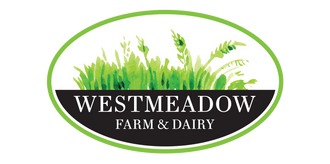Animal Treatment FAQ
How are the animals viewed on Westmeadow Farm?
We believe that the animals know how they want to live, and have done so without our help long before we intervened. The trick is to reestablish the environment they feel comfortable and safe in and trust that they know best. Our Jersey Girls are allowed to be cows, naturally. Then we have to look to Mother Nature and because she knows the whole story, and if we listen to Her cues and observe the animals carefully, then we will end up with an animal treatment policy that is whole and largely self-evident. Our care of our herd of goats is also held with this practice of letting Mother Nature guide and direct us. While our cows and goats do not have the same system, they are viewed very similarly. We can tell you all about our policies, but if you can come to our farm and see the care and love we have for our animals, then we have truly accomplished one of our goals.
The fundamental Cornerstones of our policy are to remain calm in their presence, never shout at them, never push, shove or bully them and to avoid all practices that mistreat the animals (such as twisting their tails in order to get them to comply). Animals are sentient beings and wonderful creatures that need to be treated with the same respect that you would extend to another human being. They have a role to play on this planet nourishing mankind as well as their own young, that contributes to its success, same as every living creature - nourishing mankind as well as their own young. It is for us to enable their environment, meet their comfort needs willingly and with a full heart. When we respect our animals in this way, they will respond in kind and show us the same in bounty and reward us with life long health and the best meat and milk. A true partnership.
How important is herd mentality?
Believe it or not, cows are very social creatures. If a cow is tied in a stall setup, never goes out to pasture and spends her whole day in thather stall, she rarely gets to socialize. She might not like her neighbor, and can’t do anything about that other than ignore her – another stressor? Cows are social animals who need to live and function as a herd, and even look out for each other. In a confined environment, those needs are impeded, adding more stress. Then there is the physical constraint since the animal is lying in a tight space, often rubbing against the stall’s metal bars for long periods of time. Free stall barns are an improvement over the tie stall, as they allow the animals to move around at will, but they are still living in a concrete environment all day, and ultimately return to a metal divided stall cubicle to lay down and rest.
Our compost bedded pack allows for our herd to socialize to their fullest extent, while at the same time providing a warm, soft surface where they are comfortable, whether standing or resting. We facilitate herd socialization because we understand that it is central to their nature and is a big stress reducer. It is a fascinating sight to see the Girls interacting with one another; to see the boss cows, the mothers with their daughters, and even see cliques form! We want our herd to socialize not only for our benefit, but because it makes them happier, healthier, and even increases their life expectancy!
What is the average life expectancy of your dairy cows and goats?
Often, in commercial, concentrated feed lot type environments, average life expectancy of a cow is between 3-5 years. In a natural environment, they can typically reach 15 or 16 years. Our expectation is for the girls to begin retiring at 15 years of age. Our current eldest cow is now 12 years old, and we also have several between 10 and 13 years old, but still producing great milk yield and a healthy calf every year.
A goat can live up to 14 years in some cases. Our current oldest goat is 10 years old. Very similar to our cows, we want the goats to live as long a life as they can.
For us it’s much more about enjoying a longer, calmer partnership with the animal and with Nature. It just feels right to work in harmony with something rather than forcing it. We know from experience that Mother Nature cannot be bent to our will, and to try is certain defeat. We can learn so much working with Her as a partner to achieve something great – which is much more fun, and the achievements seem to last so much longer.
Although thankfully rare nowadays, if we lose a cow or a goat unexpectedly, we always do a necropsy just to find out what exactly happened, as well as making sure a disease or other risk isn’t about to pose a threat to their respective herd. We almost always learn important information from the necropsy, about what we could change to prevent this from happening again. We are always asking the question - what can we do better. We want to know, and keep making incremental changes.
